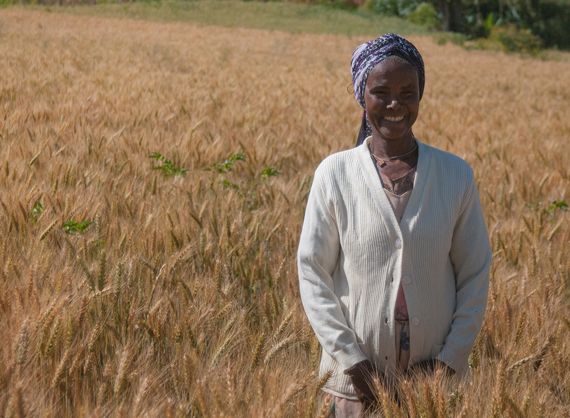
It is half a century since Irish travel writer Dervla Murphy took a step into the unknown to embark on a 1,000-mile walk through the Horn of Africa, a journey immortalized in her best-selling memoir "In Ethiopia with a Mule."
Inspired by childhood stories of the Queen of Sheba and the Lion of Judah, the writer's unaccompanied trek with her pack-mule took her through a timeless land that had changed little with the passing of the centuries.
A fortnight ago, as I walked through Getma village in Ethiopia's Southern Nations, Nationalities and Peoples' Region (SNNPR), I was reminded of Dervla Murphy and the journey she had taken 50 years earlier.
How much had change for the people of Getma in half a century, I asked myself?
In Getma, most people still harness that beast of burden, the donkey, to carry both people and goods, while the village women in their white cotton shawls and headscarves wouldn't have looked out of place in the Old Testament, let alone the 1960s.
But beyond these outward appearances, a great deal is changing for the people of rural Ethiopia, even through poverty continues to keep many of the trappings of modernity at bay.
Schmegie Kulbla is a case in point. A widow who cares for a large family, Schmegie recently built a new tin-roofed home to replace the traditional thatched hut that she shares with five of her daughters.
She built her home with money earned from the sale of wheat and barley seed that she'd produced and sold through her local farmers' cooperative.
The 59 year old mother is one of 1,350 'community-based seed multipliers' who have been trained in the production of cereal seed by Self Help Africa.
They supply Edget Seed Union, whose locally produced wheat, barley and teff (traditional grain) seed is now widely available to small-scale farmers across the SNNP Region of Ethiopia. Last year, 100% of the first generation wheat seed used by farmers to plant in parts of Southern Nations' province came from Edget suppliers.
Schmegie Kulbalya told me that the sale of 30 quintals (three tonnes) of seed she grew on a half-acre plot on her small farm earned her $100, last year. She estimates that the seed she supplied to Edget provided enough for 30 farmers in the region to plant their crops.
Limited access to farm support services such as good quality seed is a major obstacle to productivity in Ethiopia, and as a result, much of the land that is in small-scale ownership is under-producing.
That is both a good and a bad thing - for while poor yields mean that many farmers aren't producing enough, on the plus side it means that there is great potential for increased agricultural production on this land.
'Community-based seed multiplication' is just one measure that is providing a grassroots solution to a grassroots problem in rural parts of Africa's second most populous country. It is a solution being embraced by government too, with the community-based model for seed production being implemented by Edget Seed Union being incorporated into the country's new seed development strategy for agriculture.
Sitting on the stoop of her new home in Getma, Schmegie Kulbalya recognizes that for all the challenges of small-scale farming in Ethiopia, there too is enormous potential. The money she's now earning as a seed multiplier hasn't only provided her with a better home for her family, it has also enabled her to buy a calf that she intends to rear and use for breeding.
These are small steps for this slight and dignified villager, but they too are a part of a wider mobilization of local resources that are slowly, and steadily, changing the lives of households across Ethiopia's Southern Nations, Nationalities and Peoples' Region.